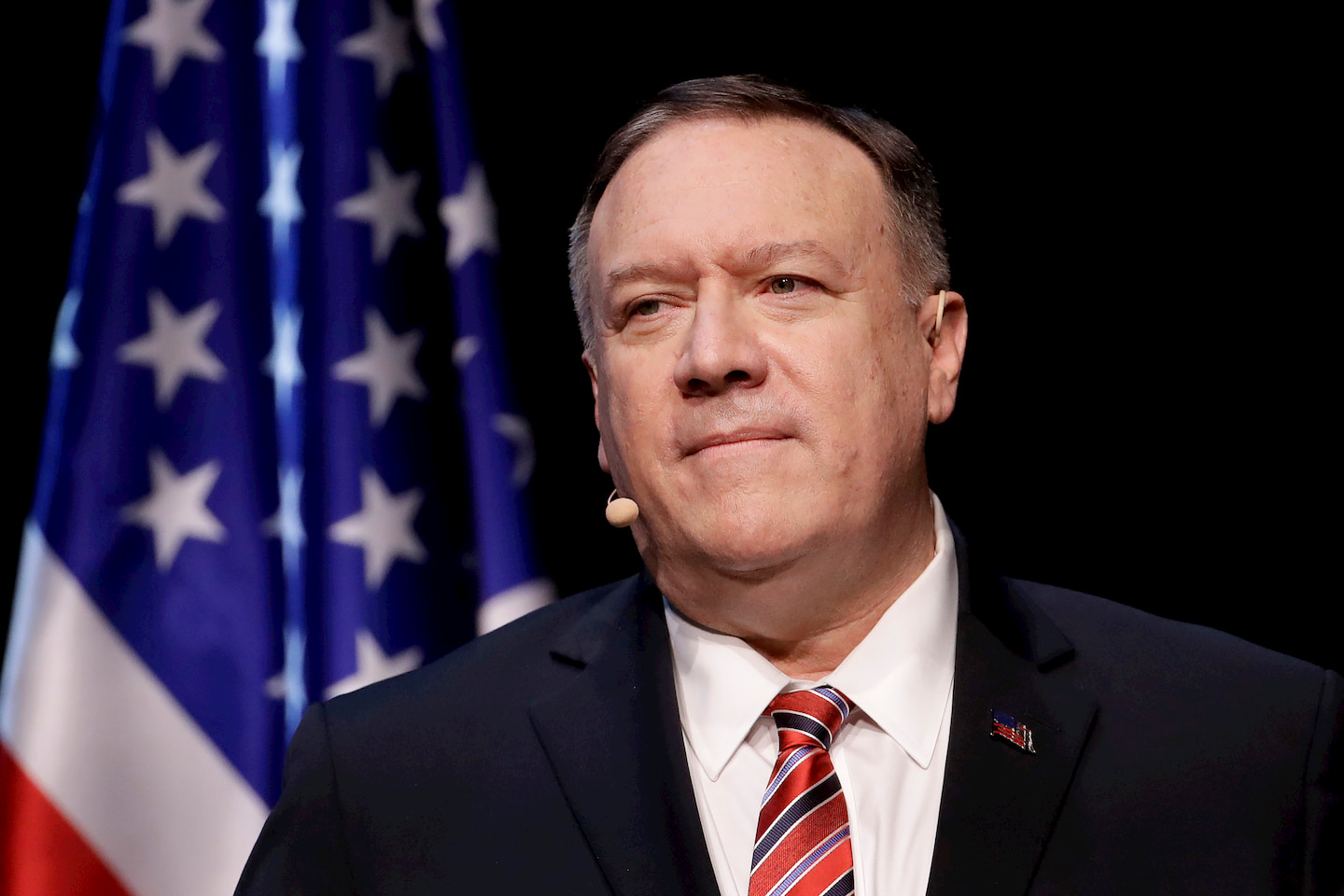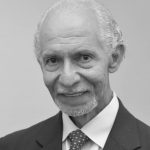The US Secretary of State Mike Pompeo’s agenda in visiting Jamaica on January 21 is to pursue the Trump administration’s geopolitical agenda in the hemisphere, and in particular to ensure continued support in the Organization of American States (OAS). With the exception of the five Caribbean leaders invited to Mar-a-Lago by President Donald Trump, as a token of appreciation for their support on Venezuela, there is broad opposition within CARICOM member states for Trump’s hemispheric agenda. Fostering disunity in CARICOM is to the Trump administration’s advantage in the OAS and on other hemispheric issues. Thus, any casual observer of the Trump administration should see through the fog of Trump’s geopolitical duplicity on this and other regional issues.
Not every Caribbean leader understands what is Trump’s real agenda. Suffice it to say, it is not the encouraging words of State Department spokespersons about Pompeo’s visit. They said Pompeo will use his visit “to emphasise the deepening” of US relationship with the Caribbean “to advance our common interests in security, prosperity, development cooperation, and the promotion of democracy and human rights, and to commemorate our strong relationship with Jamaica as a partner and ally”. Sounds good! Except, if this was Pompeo’s true intention, why only six of CARICOM’s 14 member states were invited to the roundtable meeting between him and Caribbean foreign ministers in Kingston?
If the stated objectives of Pompeo’s visit to Jamaica are duplicitous, what is the true agenda? The answer is discernable from the Trump administration’s record thus far. There are at least three main issues atop the Trump administration’s agenda for which a divided CARICOM serves US interests in the hemisphere:
Having failed miserably on its Iran policy, having brought the entire Middle East to the brink of war, the Trump administration has turned its attention back to Venezuela and the removal of Nicolás Maduro. The main purpose of Pompeo’s trips to Latin America, this being his ninth, is to consolidate support for the US agenda on Venezuela whatever direction Trump takes it. Prior to coming to Jamaica, Pompeo visited Columbia where he met with that country’s president and foreign minister, as well as bilateral meetings with the foreign ministers of Brazil and Bolivia. As strong proponents for the ouster of Maduro, these three countries share a common interest with the Trump administration.
When speaking of the region’s “development”, the Trump administration means at the exclusion of China’s economic engagement in the hemisphere. The US is offering no significant alternative. Both Pompeo and his predecessor, former Secretary Rex Tillerson, have warned Caribbean governments about what they termed as China’s “predatory economic practices” in the hemisphere. China’s engagement with Jamaica and other countries in the region makes Pompeo’s top three agenda items. Jamaica’s prime minister, Andrew Holness, seems to have gotten the message. Upon return from his late 2019 visit to China, Holness’ address to the Jamaican parliament signalled a partial retreat from broad economic engagement with China. For now, Jamaica has no viable alternative. Notably, four of the six invited to meet with Pompeo are four CARICOM governments which recognize the Republic of China (Taiwan) and not the People’s Republic of China (Beijing) – Belize, Haiti, St Kitts and Nevis, and St Lucia. The Dominican Republic switched from Taiwan to Beijing in 2018.
One of the most immediate issues facing the Trump administration is to ensure control of the OAS, thus the re-election of Luis Almagro as OAS secretary general. Almagro will need 18 votes to be successful. A unified CARICOM with 14 votes against the US-backed candidate will ensure his defeat. Keeping the Mar-a-Lago four, plus St Kitts and Belize in the US camp may be enough to ensure Almagro’s re-election. But, a number of CARICOM leaders have called for Almagro’s replacement. Opposition to Almagro has resulted from his abandonment of diplomacy and mediation for a robust backing of the Trump administration’s anti-Maduro policies, and his aggressive pursuit of policies to undermine and oust the Venezuelan leader. The election in March will provide Almagro’s detractors with an opportunity to get rid of him. Dissatisfaction with Almagro’s compromise of the integrity of the OAS as a neutral broker on Venezuela has led to the nominations of two opposing candidates from Peru and Ecuador. Maria Fernanda Espinosa, a former chancellor of Ecuador and former president of the UN General Assembly, has received the endorsement of some CARICOM members.
It’s no coincidence, the foreign ministers of six CARICOM member states plus the Dominican Republic participating in the Kingston meeting with Pompeo are the Mar-a-Lago 4+1, with the addition of Belize and St Kitts and Nevis, two CARICOM member states. Lest we forget, the Mar-a-Lago 4+1 (Bahamas, Haiti, Jamaica, and St Lucia and Dominican Republic) were invited to Trump’s Florida estate as “reward” for their fealty on Trump’s Venezuela policy, voting in the OAS to support the Trump administration. CARICOM members are sharply divided on Venezuela, and, at the time of the Mar-a-Lago visit, a number of them expressed anger for the naiveté and betrayal of those Caribbean leaders caught in Trump’s web of division. Pompeo’s visit to Kingston is to solidify their support of the US and ensure CARICOM remains divided.
Choosing Jamaica as the venue is not by happenstance. The Holness Government has betrayed Jamaica’s traditional role as leader of CARICOM on foreign policy issues, and, unlike many fellow CARICOM governments, is in lockstep with the Trump administration on a number of hemispheric issues. CARICOM’s foreign policy is in disarray and other CARICOM leaders no longer trust Jamaica to lead. Pompeo’s intention is to promote the Jamaican prime minister as the regional leader he is not. At a special session of the OAS on Friday, January 19, 2020, a meeting requested by Pompeo to speak about his trip to Latin America and Jamaica, Pompeo singled out Jamaica as “a good friend of America”. He, also in reference to his visit to Jamaica, cynically or perhaps jokingly, stated that his team told him “that would be a really tough duty”. Pompeo knowingly mischaracterised his bilateral meeting with Prime Minister Holness and foreign minister Kamina Johnson-Smith which he knew would not be the least bit challenging. Neither will his meeting with the Mar-a-Lago 4+1, and Belize and St Kitts.
Some CARICOM leaders understand the purpose and implications of Pompeo’s visit to Jamaica. CARICOM’s current chair, Prime Minister Mia Mottley of Barbados, in a stinging criticism of Pompeo’s meeting which includes only a select number of CARICOM foreign ministers, warned CARICOM members not to allow themselves to be used to advance Trump’s agenda. No doubt, Motley’s admonition fell on deaf ears.
CARICOM leaders should pause and take note of Trump’s mindless abandonment of the Kurds who carried the fighting with US forces against ISIS in Syria. They should consider Trump’s antagonistic relationship with NATO and European allies because they do not fall in line with his myopic “America first” geopolitical and security interests. CARICOM leaders should understand the transactional nature of the US president – not what was done for Trump in the past, but what will be done for Trump in the future that counts, perhaps!
The truth is, there is a lack of political will among current Caribbean leaders to stand on traditional principles. They are feckless when dealing with the Trump administration. In the face of intense pressure from, and perhaps fear of the Trump administration, that’s the best description for otherwise sycophantic behaviour. Some Caribbean leaders are allowing Trump’s policies to hasten CARICOM’s demise. In reality, Caribbean unity as envisioned by the framers of the Treaty of Chaguaramas, subsequently confirmed by heads of governments, rapidly approaches a point of no return. For idealists, the dream of Caribbean unity is only deferred to be resuscitated by a new generation of political leaders.
In the meantime, many are second-guessing what, if anything, the Trump administration holds over the current Jamaican government. What is the quid pro quo for the seemingly unqualified fealty to Trump? Rumours abound, but no one knows for sure. Many Jamaicans and the Caribbean at large are concerned that the integrity of the Holness government is compromised, and is subject to coercion. Whatever truth there is, if any, will not come to light before the next general election is held in Jamaica, or before the OAS election for secretary general. No doubt Pompeo will give assurances to Holness during his visit to Kingston not to take any action that could upset the local political landscape.
Ambassador Curtis Ward is a former ambassador of Jamaica to the United Nations with responsibility for Security Council affairs. He is the publisher of The Ward Post.
Viewpoints is committed to expanding its range of opinions and commentary. Share your views about this or any of our articles. Email feedback to viewpoints@gleanerjm.com.







